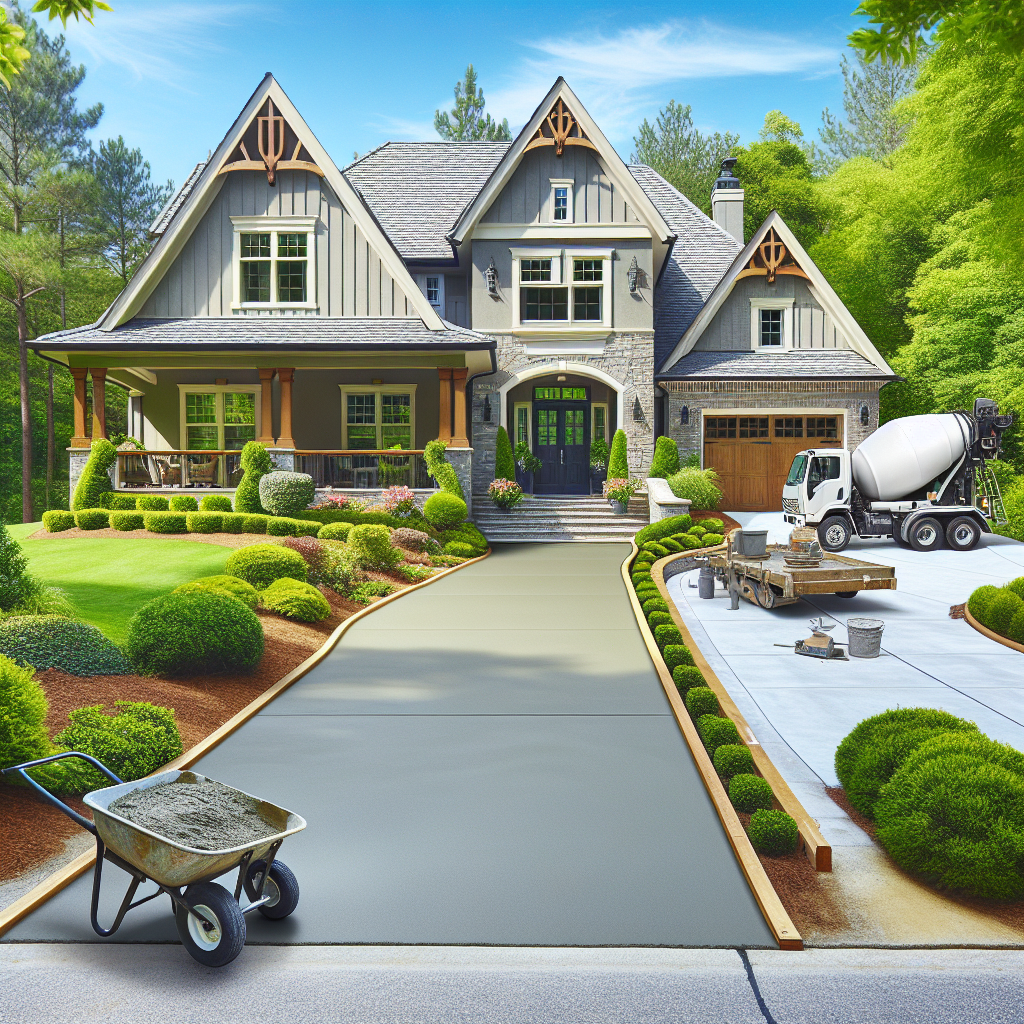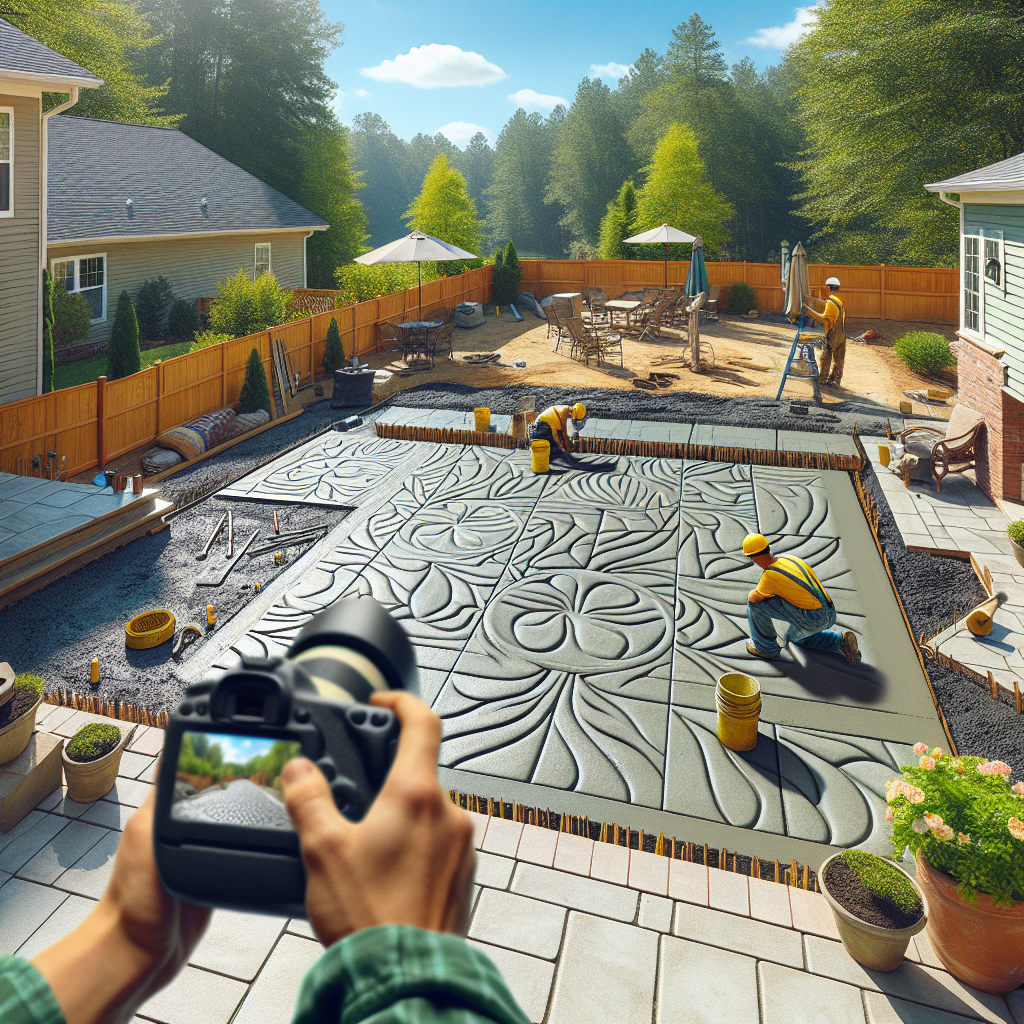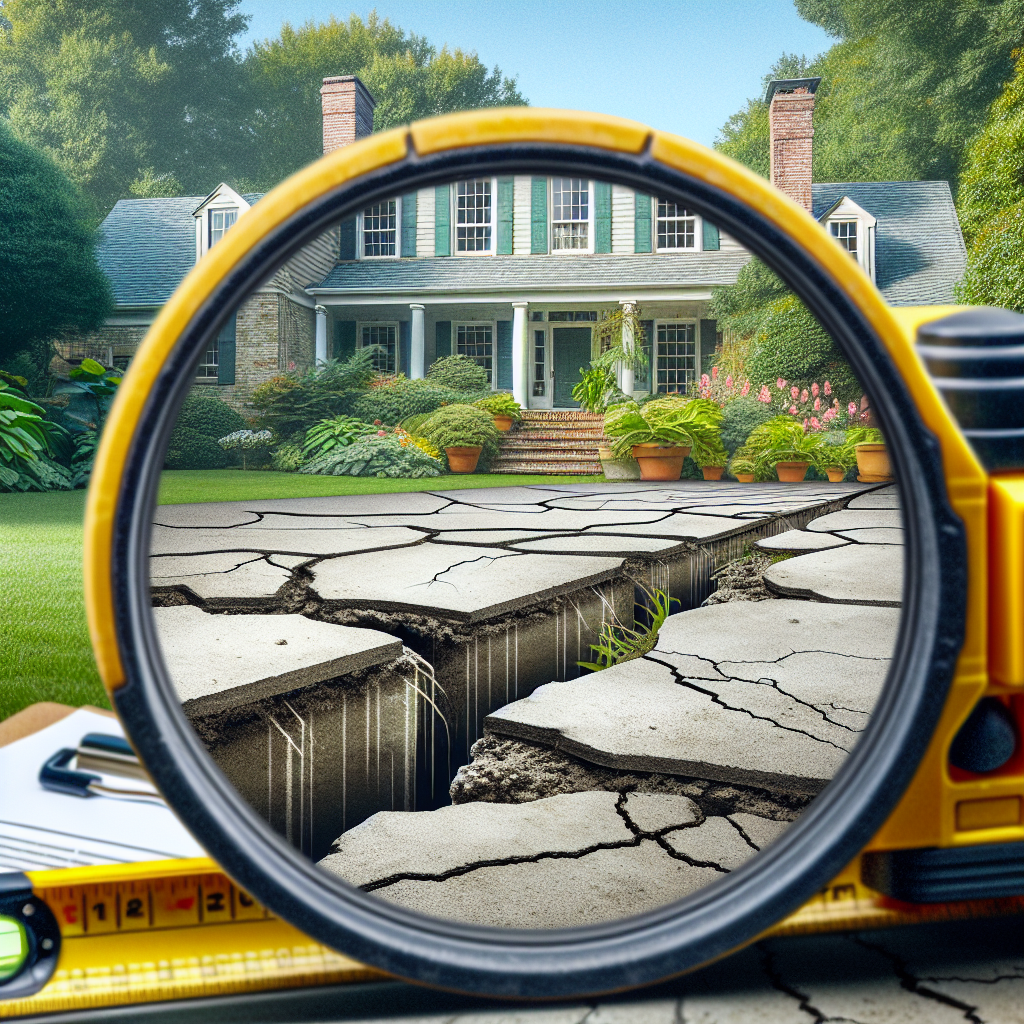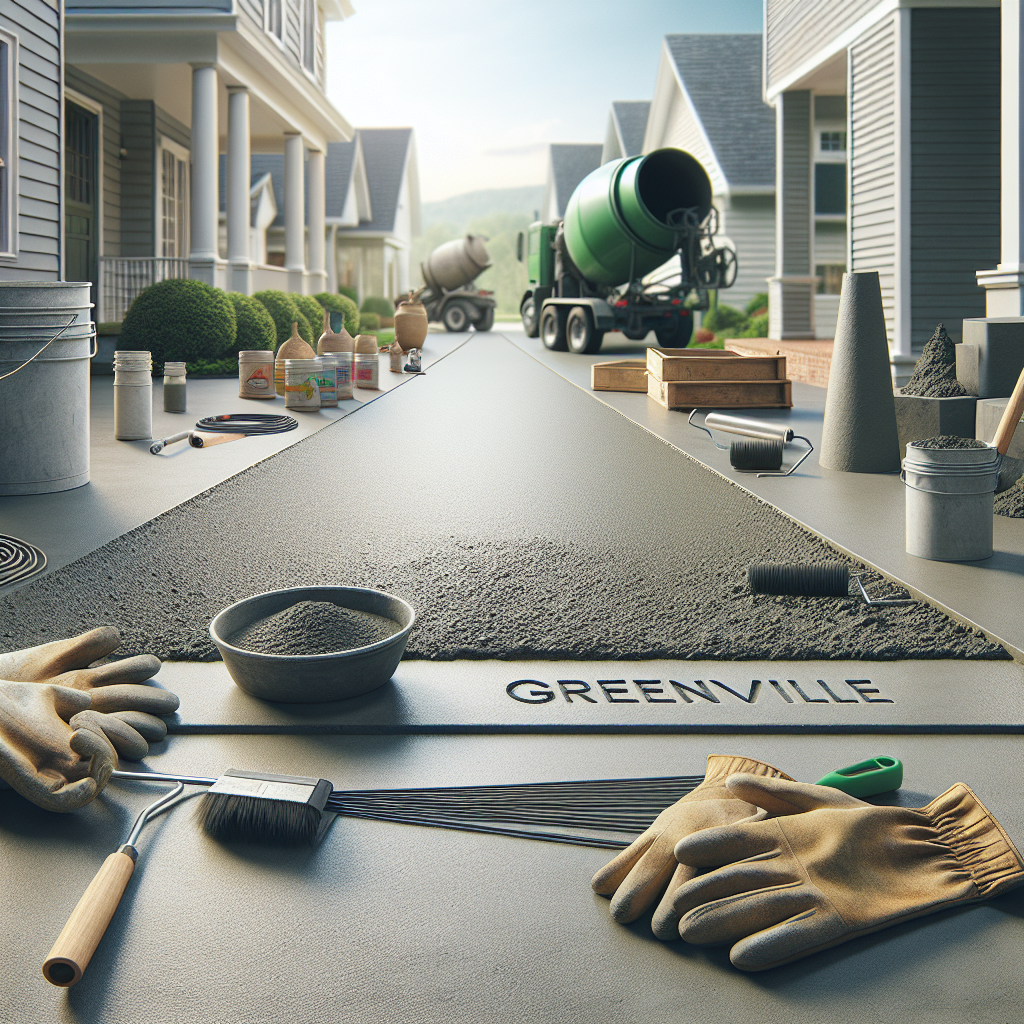Welcome to our latest blog where we dive deep into the best times for concrete installation in Greenville, SC! Whether you’re planning a new driveway, a picturesque patio, or a sturdy sidewalk, understanding Greenville’s unique climate is key to ensuring your concrete project is not just successful, but durable. Let’s explore how the local weather can impact concrete work and share some pro tips to tackle these challenges effectively.
1. Understanding the Climate of Greenville: Best Times for Concrete Installation
In Greenville, the climate plays a pivotal role in planning any concrete installation. The city experiences a moderate climate but with distinct seasonal variations that can affect concrete setting and curing. Knowing when to pour concrete can be the difference between a project that stands the test of time and one that succumbs to weather-induced issues.
2. Weather Challenges: How Rain, Temperature, and Humidity Affect Concrete Work in Greenville
Rain, temperature fluctuations, and high humidity levels can all pose significant challenges to concrete installations in Greenville. Each weather condition affects the concrete in different ways, from delaying curing times to affecting the structural integrity. Understanding these impacts can help in planning and executing concrete projects with minimal complications.
3. Pro Tips: Optimal Practices for Concrete Installation in Greenville’s Varied Weather Conditions
Armed with insights from seasoned professionals, we’ll provide some essential tips and best practices to navigate Greenville’s varied weather conditions. From the optimal time of year to lay concrete to specific techniques that help mitigate the adverse effects of weather, these expert recommendations are designed to guide both DIY enthusiasts and professional builders alike.
So, whether you’re a homeowner looking to enhance your property or a contractor aiming for perfection in concrete installations, stay tuned as we walk you through everything you need to know about laying concrete in Greenville’s ever-changing climate!

If you need help with your concrete project, reach out to Greenville Concrete Company for a free quote!
Understanding the Climate of Greenville: Best Times for Concrete Installation
Hey there! Are you planning to install some new concrete in your Greenville yard? Whether it’s a driveway, a patio, or even a fancy new walkway, knowing the local climate is crucial to ensuring your concrete sets perfectly and lasts for years. Let’s dive into the seasonal quirks of Greenville, SC, and figure out the best times for laying down some new concrete!
Greenville’s Climate Overview
Greenville enjoys a humid subtropical climate, characterized by hot, humid summers and generally mild winters. But if you’re looking at installing concrete, it’s not just about hot or cold — the timing really matters. Here’s a seasonal breakdown to guide you:
Spring: The Sweet Spot for Concrete
- Temperature: Spring in Greenville offers moderate temperatures, usually ranging from the mid-50s to high 70s (Fahrenheit), which are ideal for concrete work.
- Rainfall: While spring can be relatively wet, the rain is usually predictable, allowing you to plan your concrete projects during drier spells.
Spring’s mild weather helps the concrete cure evenly, reducing the risk of cracking due to rapid temperature changes or excessive moisture. It’s a great time to book your concrete installation, ensuring the material sets well and gains strength properly.
Summer: Watch Out for the Heat
- Temperature: Summers in Greenville are hot, with temperatures often soaring into the 90s. The intense heat can cause concrete to cure too quickly, which might lead to cracking.
- Humidity: High humidity can be a double-edged sword; it slows the curing process a bit, but too much moisture in the air can cause other issues like uneven curing and surface discoloration.
If you must install concrete in the summer, aim for early morning hours when the temperature is cooler. This can help mitigate some of the heat-related curing problems.
Fall: Another Favorable Season
- Temperature: Like spring, fall provides a perfect climate for concrete installation, with temperatures similar to spring’s, fostering ideal curing conditions.
- Rainfall: Rain is less frequent in the fall, which can provide more predictable, dry periods ideal for concrete projects.
Fall, with its stable weather and lower humidity, is another optimal time for setting up new concrete. The cooler temperatures contribute to a slower, more controlled curing process.
Winter: Proceed with Caution
- Temperature: Winters are mild but can occasionally see temperatures drop below freezing. Concrete should not be poured on frozen ground, as it can lead to improper curing and weak concrete.
- Rain and snow: Precipitation in winter might not be as heavy as in spring, but the presence of frost and occasional snow can be problematic.
If winter is the only time you can install concrete, consider using special additives to help the concrete set correctly, or discuss heated enclosures around your project area with your local concrete professionals.
Why Timing Really Matters
Choosing the right time of year for your concrete project in Greenville isn’t just about avoiding a bit of rain or working on a sunny day. The temperature and weather conditions during the first few hours and days after pouring are crucial to the longevity and strength of the concrete. Here’s why:
- Proper Curing: Concrete needs time to cure, and curing temperature can significantly affect the final strength and durability of your installation.
- Less Risk of Cracks: Sudden temperature changes and excessive moisture can lead to cracks and other structural issues in the concrete.
- Better Aesthetics: Properly cured concrete not only lasts longer but also looks smoother and more professional, boosting the curb appeal of your property.
So, in a nutshell, understanding Greenville’s climate and choosing the right time for concrete installation isn’t just good practice — it’s a necessity for ensuring a successful, durable project. Whether you’re revamping your backyard or adding a new driveway, timing your concrete installation can make all the difference!
Remember to consult with a professional concrete service in Greenville to get personalized advice based on the specifics of your project and the latest weather forecasts. Happy building!

Weather Challenges: How Rain, Temperature, and Humidity Affect Concrete Work in Greenville
When it comes to laying down concrete, Greenville’s climate can be as tricky as a Sunday crossword. Whether you’re planning a new driveway, a fancy patio, or some sturdy sidewalks, understanding how the local weather can play spoilsport is crucial. Let’s dive into how rain, temperature, and humidity specifically impact concrete installation in our lovely city of Greenville, SC.
Rain: The Unexpected Guest
Here in Greenville, rain likes to drop by unannounced, and it’s not just a light sprinkle we’re talking about. When it comes to concrete work, rain can be quite the intruder. Pouring concrete in the rain? That’s a no-go. Water can dilute and destabilize the mix, leading to weaker structures. But don’t worry, the solution isn’t as daunting as it seems:
- Check the forecast: Always keep an eye on Greenville’s weather predictions. If rain seems likely, it might be best to reschedule.
- Use covers: If a surprise shower occurs during curing, having polyethylene sheeting on hand can save the day by protecting the concrete.
Temperature: A Balancing Act
Temperature plays a massive role in how well concrete sets and cures. In Greenville, summer temps can soar, speeding up the curing process, sometimes too fast for comfort. On the flip side, our mild winters might seem harmless, but cold can slow down the curing to a snail’s pace. Here’s how to manage:
- Summer savvy: If pouring concrete in the heat, aim for early morning hours when temperatures are cooler. Hydration stabilizers can also be added to the mix to slow down the curing process.
- Winter wisdom: During colder months, use warm water in your mix to help it set properly. Covering the concrete with blankets can also keep the temperature steady.
Humidity: The Invisible Influencer
Greenville’s humidity isn’t just a bad hair day waiting to happen; it can also affect your concrete. High humidity can slow down the drying process, while low humidity might rush it. Keeping a balanced drying time is crucial for a sturdy and crack-free finish. Here’s how to tackle humidity:
- Embrace evaporation: On high humidity days, be patient. It might take longer for the water in the concrete to evaporate, which is essential for curing.
- Control the cure: During low humidity, consider lightly spraying the surface with water to prevent too-quick drying, which can lead to cracking.
Planning and Preparation: Your Best Allies
The unpredictable Greenville weather can pose a few hurdles, but with proper planning and a bit of local know-how, these can be easily overcome. Remember, each project is unique, and conditions can vary even within the same day. Consulting with professionals who understand the local climate can make all the difference in ensuring your concrete installations are durable, strong, and set up for success.
So whether you’re a DIY enthusiast or looking to hire experts for your next concrete project in Greenville, SC, keep these weather challenges in mind. After all, a little bit of knowledge and preparation can lead to results that are not only practical but also pleasing to the eye. Happy building!
Pro Tips: Optimal Practices for Concrete Installation in Greenville’s Varied Weather Conditions
Hey Greenville folks! When it comes to laying down some new concrete, whether it’s a sleek new driveway, a sturdy sidewalk, or that patio you’ve been dreaming about, knowing how to tackle the job in our local weather is key. Let’s dive into some professional tips that will help ensure your concrete installation is nothing short of perfect, despite Greenville’s ever-changing climate.
Timing Is Everything: Choosing the Right Season
First things first, picking the right time of year can make all the difference. In Greenville, our springs and falls are usually mild and provide an ideal climate for concrete work. The cooler temperatures and manageable humidity levels help the concrete to cure slowly and evenly, which is exactly what we want. Try to schedule your concrete projects around these seasons to take advantage of the best weather conditions.
Beating the Heat: Summer Concrete Installation
Summertime in Greenville can be tricky for laying concrete. The high temperatures and humidity can cause the concrete to cure too quickly, which might lead to cracking and other issues. But don’t worry, you can still successfully install concrete in the summer if you follow these tips:
- Start Early: Aim to begin your concrete work early in the morning when the temperatures are cooler.
- Use Cold Water: Mix your concrete with cold water to slow down the curing process.
- Shade Your Workspace: If possible, use sun shades or tarps to keep the area as cool as possible.
- Hydrate Your Concrete: Keep the concrete moist by periodically misting the surface with water during the curing process.
Managing Moisture: Wet Weather Woes
Greenville sees its fair share of rain, especially in the winter and spring. While rain can complicate concrete installation, it’s not a showstopper. Here’s how to handle wet weather:
- Watch the Forecast: Always keep an eye on the weather and try to choose a dry spell for your concrete work.
- Cover Fresh Concrete: If rain appears unexpectedly, be ready to cover your fresh concrete with a waterproof tarp.
- Proper Drainage: Ensure your installation site has adequate drainage to avoid water pooling in the new concrete.
- Additives: Consider using products that accelerate curing time to diminish the impact of rain.
Winter Warnings: Cold Weather Concreting
Winter in Greenville can sometimes see temperatures dipping low enough to pose a threat to curing concrete. Concrete can freeze before it sets, leading to weakened durability. If you need to pour concrete in colder weather, here are some tips to protect your project:
- Use Heating Blankets: Keep the concrete warm using specially designed heating blankets or covers.
- Choose the Right Mixture: Use a concrete mix formulated for cold weather that includes accelerators to speed up the curing process.
- Heat the Subgrade: Before pouring, make sure the ground is not frozen. You can heat the subgrade using portable heaters.
- Limit Water Use: Reduce the amount of water in the mix to lower the chances of freezing.
Every Detail Counts: Fine-Tuning Your Approach
Lastly, paying attention to the small stuff can significantly enhance the quality and longevity of your concrete installations. Here are some finer points to keep in mind:
- Proper Mixing: Ensure your concrete is mixed thoroughly. An uneven mix can lead to weak spots.
- Concrete Thickness: Don’t skimp on the thickness of your concrete. Following the recommended depth for different installations like driveways or patios is critical.
- Joint Placement: Plan for expansion joints in your concrete to help control cracking during temperature changes.
- Professional Finishing: Consider hiring a professional to finish the surface. A well-finished concrete surface not only looks great but also lasts longer.
In Greenville, adjusting your concrete installation practices to suit our local weather conditions can make a huge difference in the outcome of your project. So, whether you’re planning a home improvement or a commercial installation, keep these tips in mind for flawless concrete work every time! Remember, a little planning and adaptability to our Greenville climate will go a long way in ensuring your concrete installations stand the test of time.
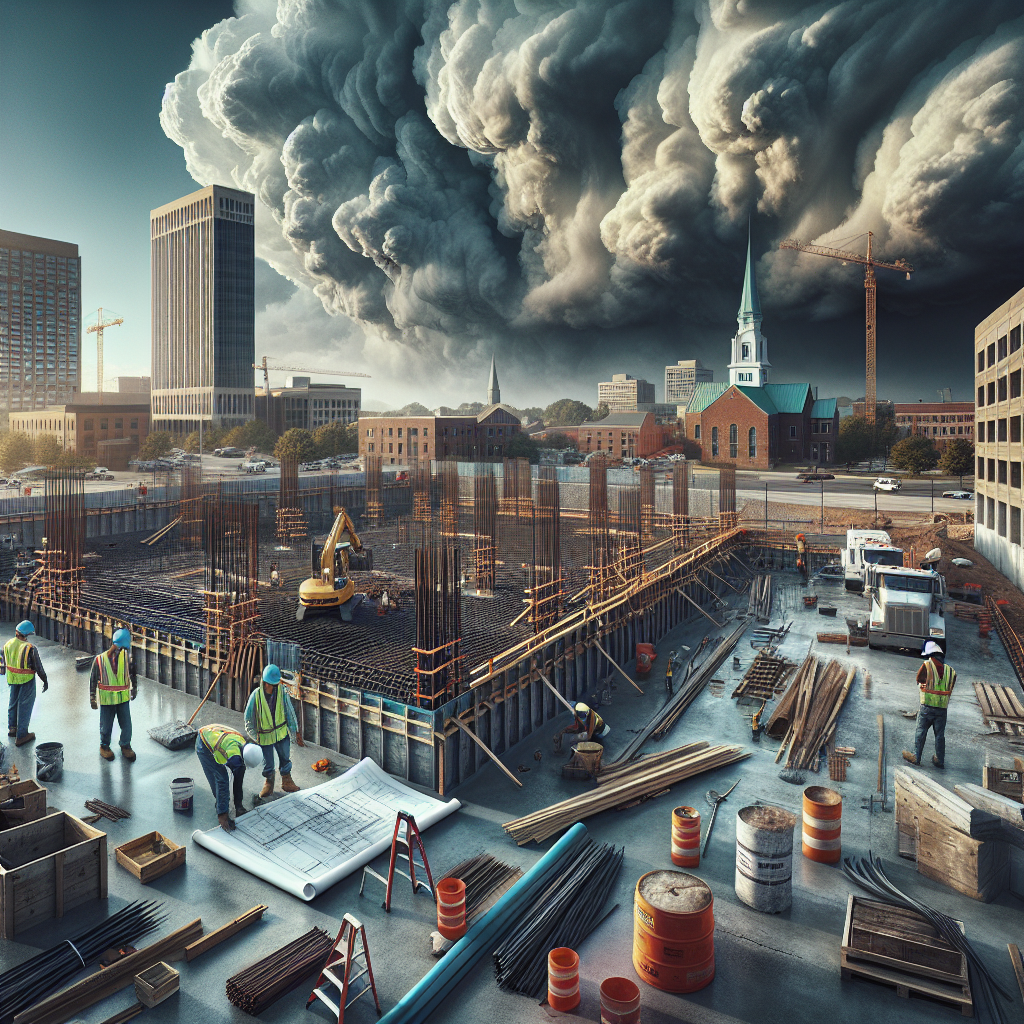
Frequently Asked Questions about Concrete Installation in Greenville
What is the best time of year to install concrete in Greenville?
The ideal time for concrete installation in Greenville is during the spring and early fall. These seasons offer moderate temperatures and minimal rainfall, creating perfect conditions for concrete to cure properly. Avoid the extreme heat of summer and the unpredictable cold snaps in winter to ensure the best results.
How does rain affect concrete installation?
Rain can be one of the biggest challenges when installing concrete. If concrete is exposed to water before it has had a chance to set, it can weaken the mixture, leading to diminished strength and durability. Always check the forecast before scheduling your concrete project and consider a cover or postponement if heavy rain is expected.
Can concrete be poured in cold weather?
Yes, concrete can be poured in cold weather, but it requires special preparations. Use of hot water in the mix and insulated blankets to maintain temperature can help. However, it’s generally recommended to avoid installation during freezing temperatures to prevent cracking and ensure proper curing.
What are the effects of high humidity on concrete curing?
High humidity can slow down the curing process of concrete. While it prevents the concrete from drying too quickly, excessive moisture in the air can lead to surface defects such as mildew or efflorescence. Proper timing and techniques are crucial to manage these effects.
What steps should be taken to prepare for concrete installation?
Preparation is key to a successful concrete installation. This includes clearing the site of debris, ensuring a stable subbase, and setting up proper forms and reinforcement. Also, plan for adequate manpower and equipment to handle the material efficiently.
How do I maintain my new concrete?
Maintaining your new concrete involves proper sealing, regular cleaning, and avoiding the use of harsh chemicals. Additionally, during the first week after installation, it’s crucial to keep the concrete moist to help the curing process.
Do I need a professional for concrete installation?
While small DIY projects can be achievable, for most concrete installations, especially for structural or larger surface areas, hiring a professional is recommended. Experienced professionals can ensure that the mix, installation, and finishing touches meet the highest standards for durability and aesthetics.
Why choose Greenville Concrete Company for your installation?
Choosing Greenville Concrete Company means opting for reliability, expertise, and top-notch customer service. With years of experience in local concrete solutions, our team ensures your project meets all your expectations and adheres to the highest quality standards.
Conclusion
Whether you’re planning a new driveway, patio, or any other concrete project, understanding the unique weather challenges of Greenville is crucial. With the right timing and technical know-how, your concrete installation can be a smooth, successful endeavor. Remember, the spring and early fall seasons are your best bets for optimal curing conditions.
At Greenville Concrete Company, we pride ourselves on our professional expertise and commitment to customer satisfaction. We understand the local climate and have honed our processes to ensure the best results for your concrete projects. Don’t hesitate to reach out for a free quote and to discuss your upcoming concrete needs. Our friendly team is here to provide tailored solutions that will enhance the durability and appeal of your property. Trust us to help you achieve the perfect mix of quality and aesthetics for your concrete installations.

